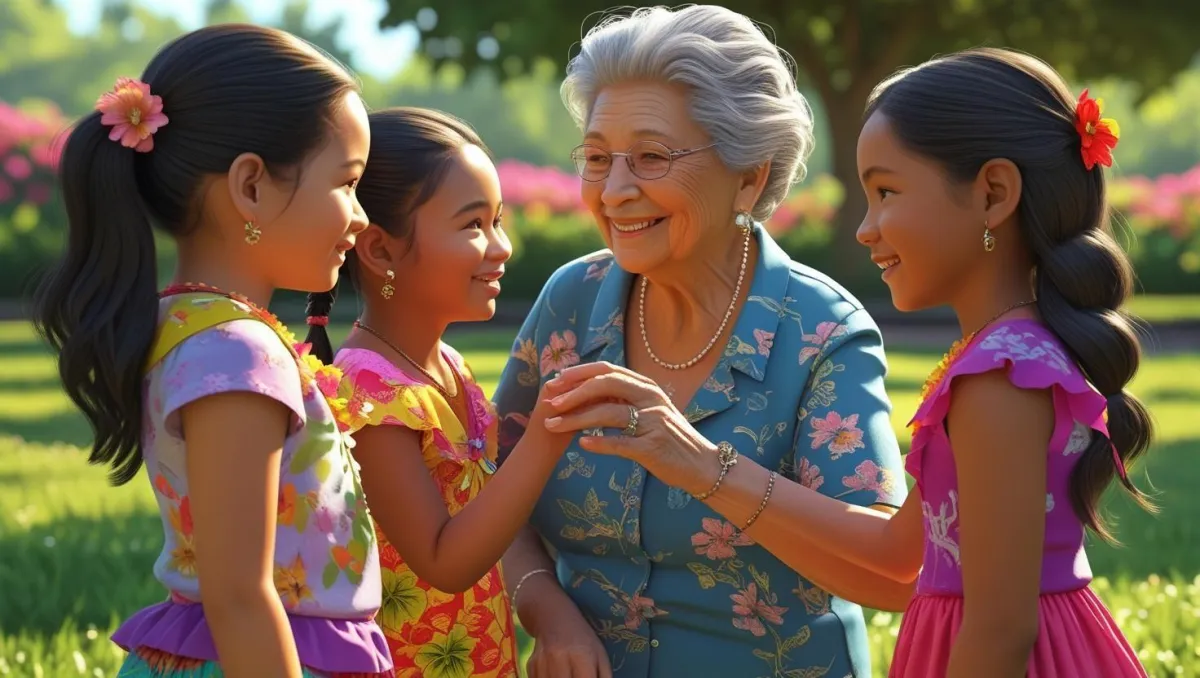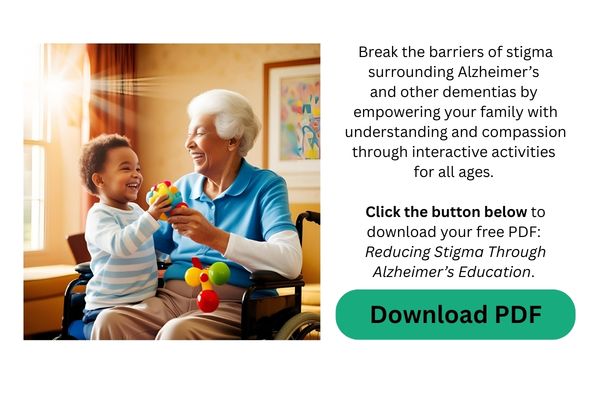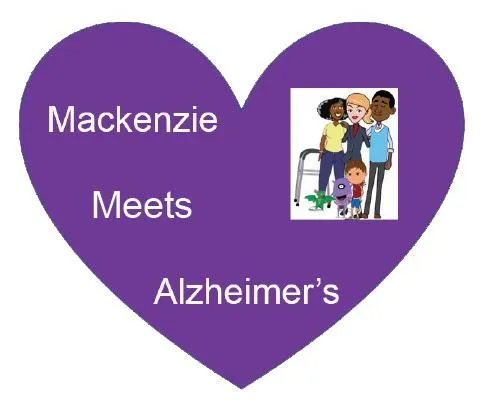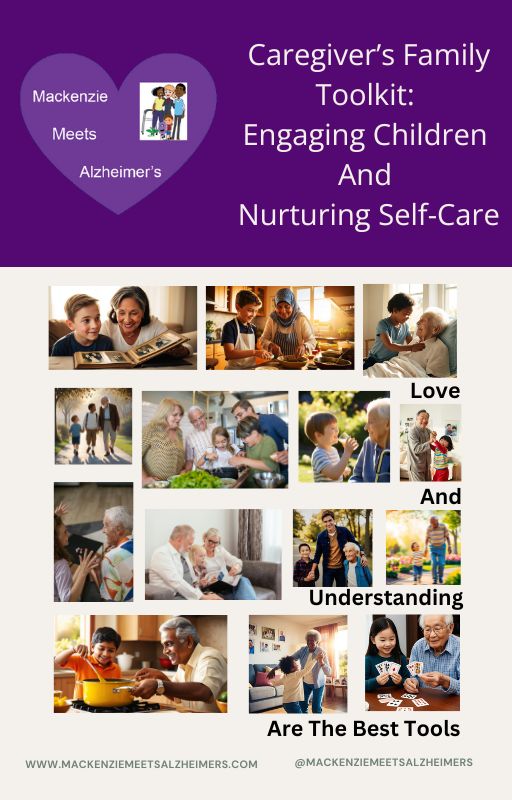
Breaking the Silence: Empowering Sandwich Generation Caregivers to Reduce the Stigma Around Alzheimer's and Dementia
Story
On a sunny afternoon, eight-year-old Mackenzie watched her grandmother, Nana Rose, in the garden.
Nana Rose was Mackenzie's favorite storyteller. But lately, things have been different.
"Nana, why did you put your purse in the fridge?" Mackenzie asked gently, recalling the morning's mishap.
Nana Rose paused, looking puzzled. "Oh, did I do that, sweetheart? Silly me," she chuckled, though Mackenzie noticed the concern in her eyes.
At school, Mackenzie overheard classmates whispering, "Her grandma is losing her mind." It hurt, and she didn't understand why they mocked something so difficult for her family.
Back home, she asked her mom, "Why do people say mean things about Nana?"
Her mom replied, "Sometimes, when people don’t understand something, it scares them. But we can help them learn."
The next day, Mackenzie shared Nana Rose's magical stories with her class, helping them see her grandmother's kindness and creativity. Slowly, laughter gave way to curiosity, and understanding began to take hold.
Through her stories, Mackenzie bridged the gap between misunderstanding and empathy, demonstrating that even the smallest voices can alter our perspective on Alzheimer’s and dementia.
Information:
Caring for both children and parents is no small feat, especially when a loved one has Alzheimer’s or any type of dementia. The challenges are immense, but the stigma surrounding these diseases can make your journey even harder.
Have you ever felt the weight of misunderstanding when sharing your caregiving experiences? Or sensed judgment in the eyes of others when discussing your loved one's diagnosis? You're not alone. The stigma attached to Alzheimer’s and dementia often isolates caregivers, adding to their stress and making it difficult to access support.
Download our free PDF below for information, tips, and activities on decreasing the stigma of Alzheimer's and any type of dementia.

Educating the Young Minds:
One of the most effective ways to reduce stigma and foster understanding is by educating children about Alzheimer’s. Children are naturally curious, and by addressing their questions and concerns early on, a foundation of empathy and awareness can be built. Use age-appropriate language to explain what Alzheimer's is, emphasizing that it's a medical condition that affects the brain. Encourage children to ask questions and express their feelings about any changes they notice in their loved ones. Get our free Caregiver's Family Toolkit: Engaging Children and Nurturing Self-Care to help explain Alzheimer's to children available here.
Tips:
Family Discussions:
Create an environment where open discussions about Alzheimer’s and dementia are normalized. Regular family meetings can be a great platform for everyone, including children, to share their thoughts and learn from one another. Encourage children to participate by asking them how they feel, what they’ve learned, and how they can support their loved ones.
By involving children in the conversation, not only do we equip them with the knowledge to understand these conditions, but we also empower them to be compassionate allies in the caregiving journey.Building a Support Network: Feeling alone is common in the sandwich generation, but building a network can provide essential support and reduce stigma. Connect with other caregivers through local support groups or online forums. Engaging with those who share your experiences can lead to valuable insights and emotional support.
3. Communication Tips: When speaking with children about Alzheimer’s or any type of dementia, focus on the person’s abilities rather than their inabilities. Use language that respects their loved one's dignity and individuality. Sharing positive stories about your loved one's past or accomplishments can also shift the focus away from the disease.
Activities:
Incorporate activities that help children relate to the challenges faced by those with Alzheimer's.
1. Simple exercises like memory games or role-playing scenarios, help children understand the importance of patience and communication.
2. Storybooks and educational videos specifically designed to address these topics are also powerful tools in educating children.
3. Download our free PDF on reducing the stigma of Alzheimer's
By reducing the stigma associated with Alzheimer’s and dementia, you not only transform your caregiving experience but also create a more compassionate community. Knowledge spurs understanding, and when shared, it dissolves misconceptions and fosters empathy. It's never easy, but with the right tools and support, it's possible to make a change.
Ready to explore more about creating a nurturing environment for your child and your loved one with Alzheimer's or any type of dementia? Consider purchasing our Mackenzie Meets Alzheimer's Awareness Program. Learn more here.

